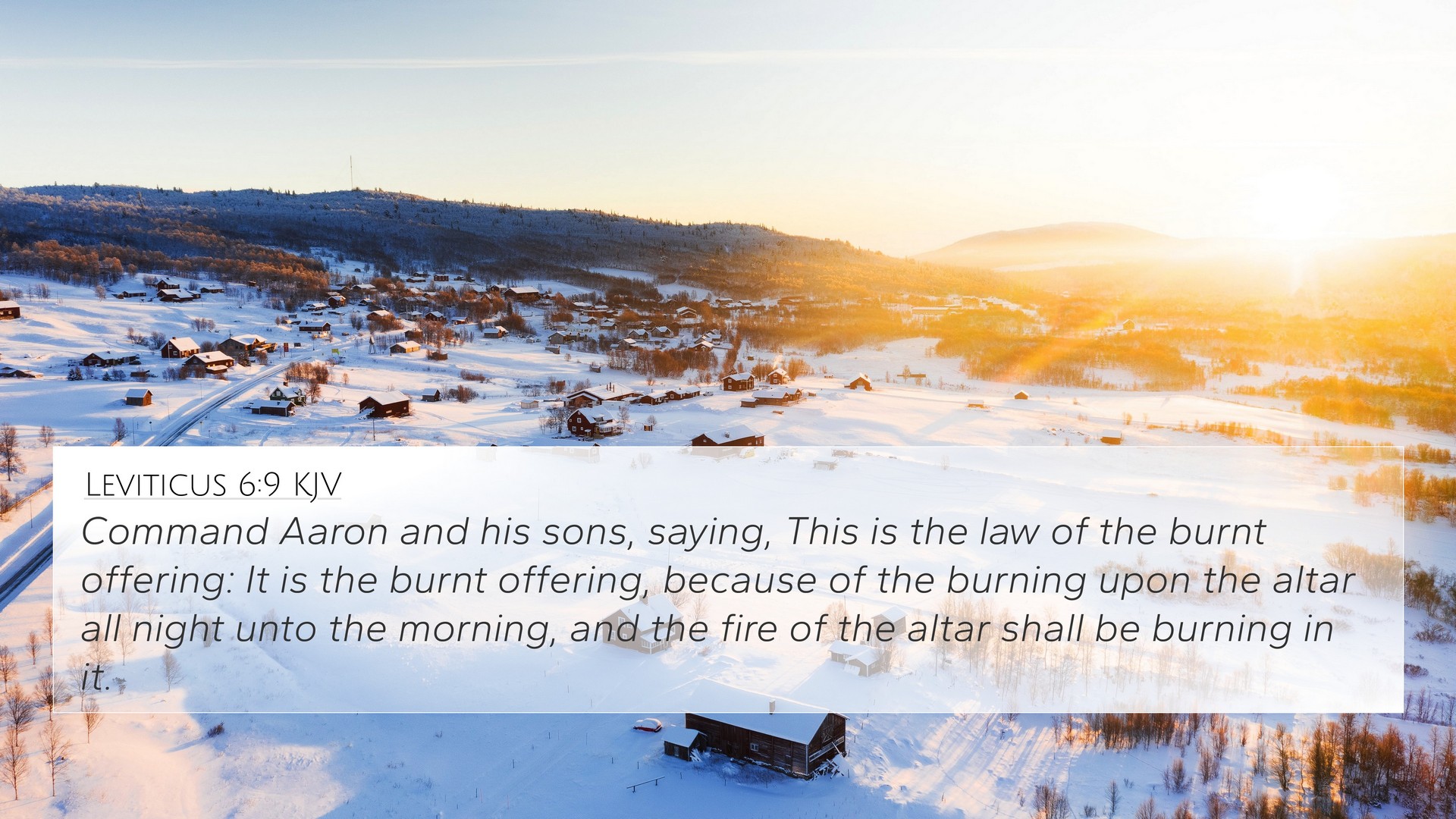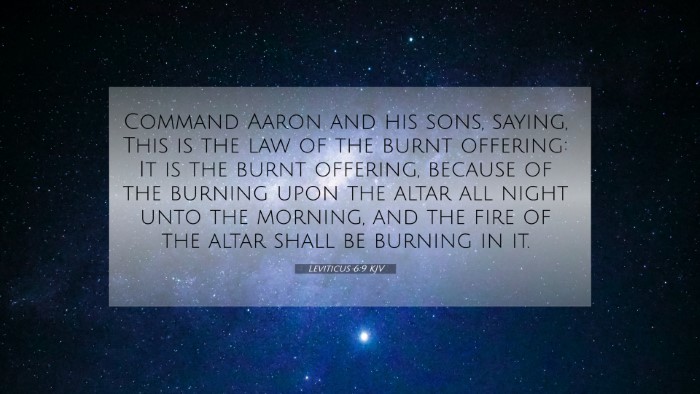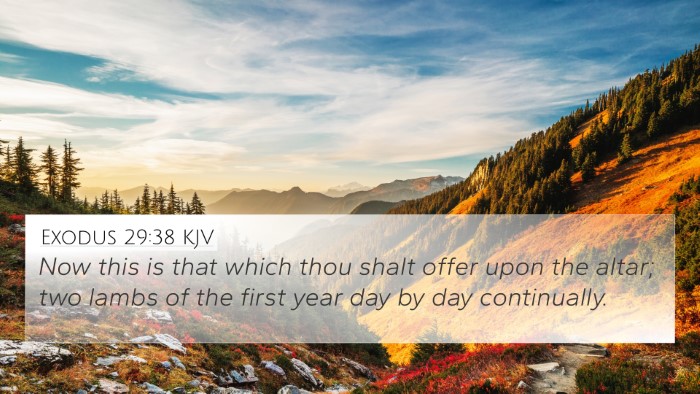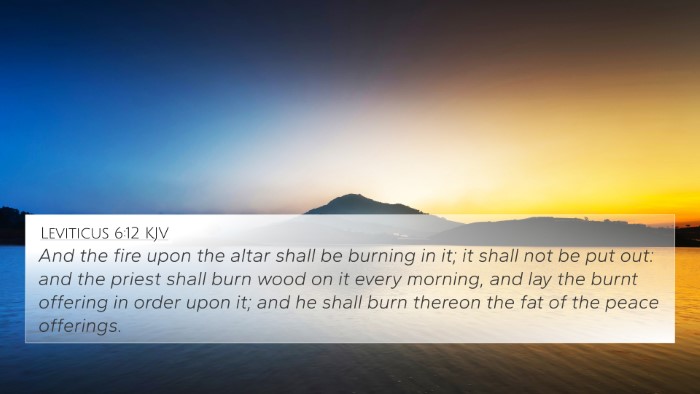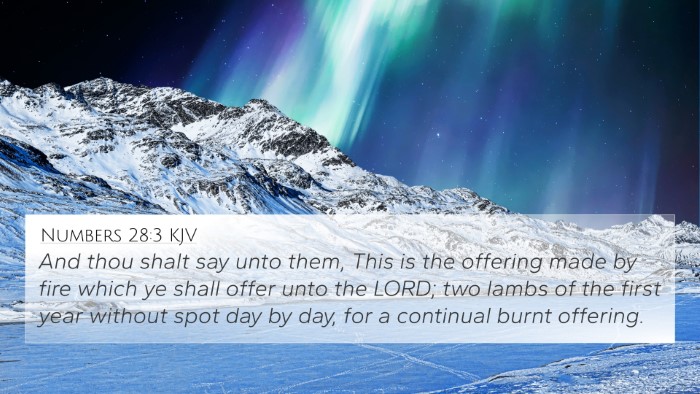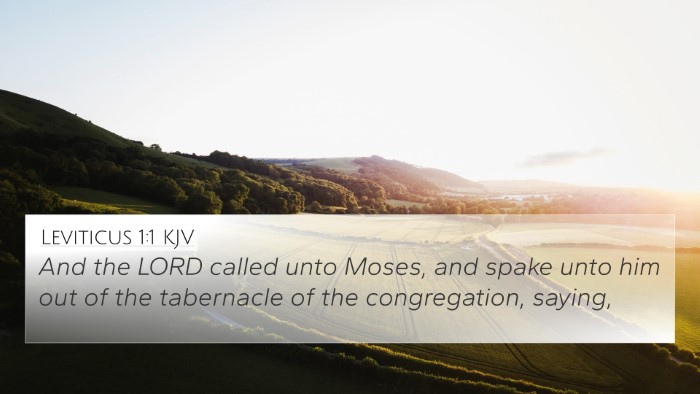Understanding Leviticus 6:9
Bible Verse: "Command Aaron and his sons, saying, This is the law of the burnt offering: It is the burnt offering, because of the burning upon the altar all night unto the morning, and the fire of the altar shall be burning in it." (Leviticus 6:9)
Overview
Leviticus 6:9 introduces the regulations around the burnt offerings, which are pivotal in the worship practices of Ancient Israel. This verse sets the tone for understanding the significance of sacrifices, mediating God's presence through atonement, and the continuous nature of fire on the altar symbolizing God's acceptance of offerings.
Cross-References
- Leviticus 1:7-9 – Details on the burnt offering, including the priest's role.
- Exodus 29:38-42 – Instructions regarding daily offerings.
- Numbers 28:2-4 – Discusses the continual burnt offerings by fire.
- Romans 12:1 – The New Testament reference to presenting oneself as a living sacrifice.
- Hebrews 10:1-4 – Speaks about the insufficiency of the Old Testament sacrifices.
- Psalm 51:17 – God desires a broken spirit, indicating the heart behind the offering.
- Matthew 5:23-24 – Encourages reconciliation with others before offering gifts to God.
Interpretation and Insights
This verse serves a foundational role in understanding the sacrificial system established in the Law of Moses. According to Matthew Henry's Commentary, the command to burn an offering all night emphasizes the need for God’s ongoing presence and the continuous commitment of worshippers. The persistent flame signifies a perpetual atonement and acceptance before God.
Albert Barnes comments on the necessity of the burnt offering as a means of drawing near to God, illustrating that it was not merely a ritualistic act but a profound acknowledgment of human inadequacy and the need for divine grace. The fire, ever blazing, portrays a divine invitation to maintain a relationship with the Holy.
Adam Clarke's Commentary draws attention to the physical aspects of these rituals. He outlines how the offerings, when performed correctly, reflect obedience and sincere devotion to God. The specifics about timing and maintenance of the fire on the altar underline God's details for worship, revealing a God deeply concerned with how He is approached.
Thematic Connections
The themes of sacrifice and divine commitment resonate throughout Scripture, culminating in the ultimate sacrifice of Christ. Cross-referencing Biblical texts can reveal patterns and deeper meanings in worship practices:
- Sacrificial Nature: The burnt offering relates to the concept of total devotion, which is echoed in Romans 12:1, where believers are urged to present their lives as sacrifices.
- God's Presence: Leviticus 1:9 discusses the aroma pleasing to God, similar to how prayers of the faithful are likened to incense (Revelation 5:8).
- Continuous Worship: The fires that were not allowed to die also reflect the call for believers to 'pray without ceasing' (1 Thessalonians 5:17).
- The Old and New Covenant: Understanding burnt offerings in the Old Testament enhances comprehension of the sacrifice of Christ (Hebrews 10:10).
Applications
Leviticus 6:9 serves as a reminder of our need for continuous dedication in our worship and life, emphasizing the following:
- Understanding the significance of Jesus' sacrifice as fulfilling the need for atonement.
- Recognizing the importance of having a sincere heart when approaching God.
- Ensuring our lives reflect ongoing commitment to God’s service.
Conclusion
Through detailed study and comparative analysis of relevant biblical texts, one can grasp the profound meanings embedded in Leviticus 6:9. Tools for Bible cross-referencing enhance our study, illuminating connections between Old and New Testament teachings and echoing timeless truth in the believer's life.
